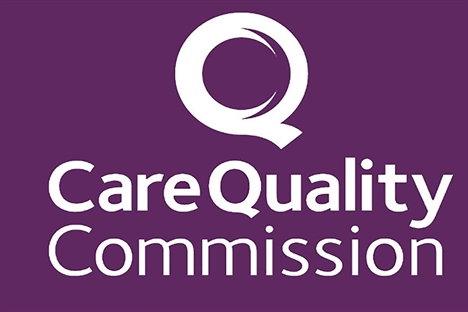05.07.16
What next for the Care Quality Commission?
Source: NHE Jul/Aug 16
 As the Care Quality Commission (CQC) prepares to implement its new strategy, Martha Everett, policy officer at NHS Providers, considers what factors will help it deliver a more targeted, responsive and collaborative approach to regulation.
As the Care Quality Commission (CQC) prepares to implement its new strategy, Martha Everett, policy officer at NHS Providers, considers what factors will help it deliver a more targeted, responsive and collaborative approach to regulation.
The CQC has come a long way in its recent history. Under new leadership since 2012, it has rolled out a rigorous and demanding new inspection regime. Now it is, to all intents and purposes, a different organisation. The regulator, as NHE went to press, was close to having made a thorough inspection of every health and social care provider in the country, and the time is right to take stock of what these visits have revealed and consider how to move forward.
The CQC’s mission is to ensure people are well-served by those they trust to care for them, and protected from harm when they use services. This goal should, and will, remain at the centre of its approach. However, this is a time of scarce resources, rocketing demand and a seemingly endless list of priorities for the NHS to deliver. No sooner have providers started thinking about how to staff seven-day services from a chronic undersupply of workers than they are asked to develop sustainability and transformation plans, working with neighbours who they may not always consider their natural partners to completely overhaul local systems. In this context, something has got to give and with the first round of inspections almost complete, it is reasonable to ask whether the CQC’s regime could be scaled back and still deliver its purpose, as well as better value for the taxpayer.
In developing its strategy for the next five years, a flagship piece of work for the regulator, the CQC has done just this, and has sensibly concluded that the answer is yes – it can. It is also the only practical option, given the cuts in government funding to the regulator and further reductions expected in coming years. Plans to streamline and target resources more effectively have come as a relief to providers, who have sometimes struggled with the scale and intensity of inspections.
So the CQC has committed to adopting a more targeted, responsive and collaborative approach to regulation. We can all get on board with that. The trickier question is how? From a provider perspective, there are a few things that will be critical if the new model is to be a success.
Getting the intelligence right
The CQC’s ability to identify and respond to risk will depend on the quality and accuracy of the data and information it collects. Its proposed intelligence-driven model is predicated on the regulator knowing what to look for when targeting its efforts, to which end the CQC is building its analytic capacity. Without regular full inspections as a safety net, a failure to get this right could lead to grave consequences.
To date, providers have been sceptical about the CQC’s monitoring system, in particular in the community and mental health sectors, suggesting there could be a long way to go before it is fit for this new purpose. But using information from people who use services systematically alongside quantitative metrics, and working with providers to develop a universal way of understanding quality, are steps in the right direction.

Making space for new ways of delivering care
The new models of care that are springing up throughout the health and care system are changing the face of provision, and rightly so. New demographics, health challenges, lifestyles and expectations demand new ways of thinking about healthcare that fits around people’s lives and makes them active partners.
A rigid adherence to an institutionally based model of regulation could stymie innovation, undermine efforts to integrate care and potentially punish providers who attempt to put in place new structures to deliver quality care efficiently. The CQC is right to recognise the need to respond flexibly to these new models, while ensuring the care provided meets fundamental standards and that the proper lines of accountability are maintained. The regulator must also be wary of jumping ahead of the sector and trying to pre-empt how provision will develop over time.
Securing the confidence of providers and the public
If the CQC wishes to become the sole arbiter of quality in health and social care provision, relied on by the public to decide where they go for care, by providers to get information on where they can improve and by NHS Improvement to help determine the level of support providers require, it will be essential that it can demonstrate the reliability of its insights, the impact of its activity and the efficiency of its processes over the long term.
Minimising the burden the model places on providers, ensuring its staff are equipped for the job and measuring the value it delivers will all be key factors for the CQC to cement its place in the system. Communicating the difference it makes is perhaps one of the biggest challenges the regulator will face.
Working with other national bodies to tackle the barriers to efficient, high-quality care
The CQC, NHS Improvement and NHS England together hold many levers that can enable providers to deliver excellent care. However, these levers also have the potential to make things more difficult when they pull in opposite directions or distract focus from the real goal: keeping people well.
Regulation, payment systems and performance standards are all intended to incentivise the best use of resources to deliver the best possible health services, but they can inadvertently have negative effects, particularly when a provider seeks to break the mould and do something that falls outside the established parameters.
National bodies also have a responsibility to understand the risks providers may well face in making changes, which includes not encouraging them to take steps that might place them on shaky legal ground. It is essential that they work together to eliminate perverse incentives in the system and act as an enabling, supportive structure that promotes innovation.
The CQC has travelled a long way, but it has a long journey still ahead of it. The current regime took shape at a time when people’s confidence in health and care regulation had been deeply shaken, and a thorough overhaul was needed to rebuild trust.
The foundations have been laid, and in a climate of growing pressure on resources across the public sector, the CQC will need to think carefully as it implements its strategy about how best to meet the challenges of the future and sustainably support providers’ own initiatives to safely deliver the care people need now.
Tell us what you think – have your say below or email [email protected]